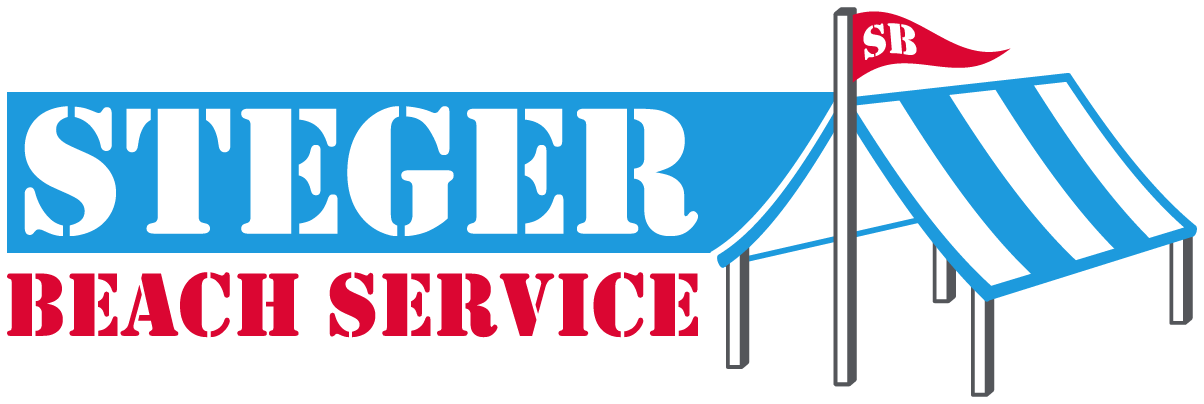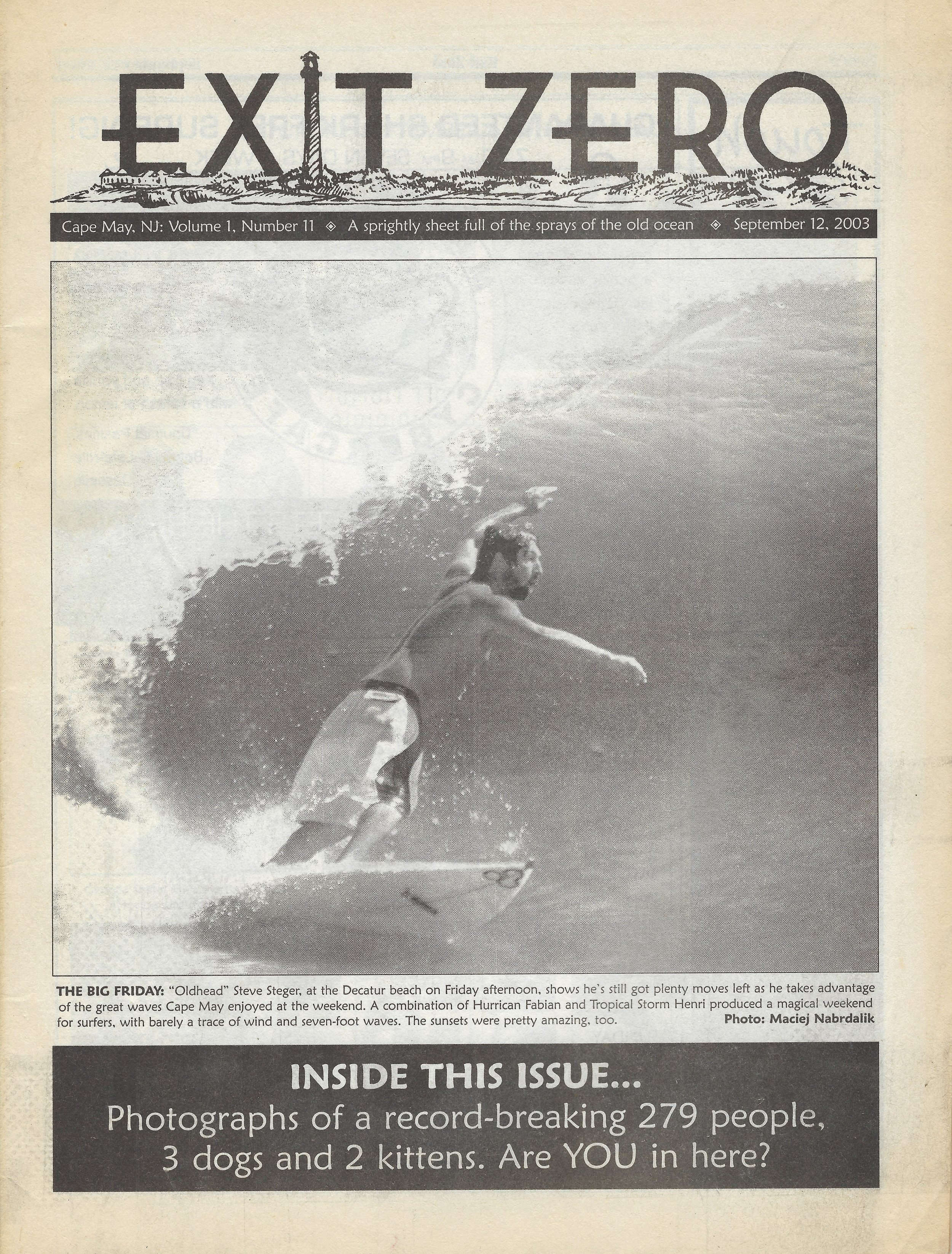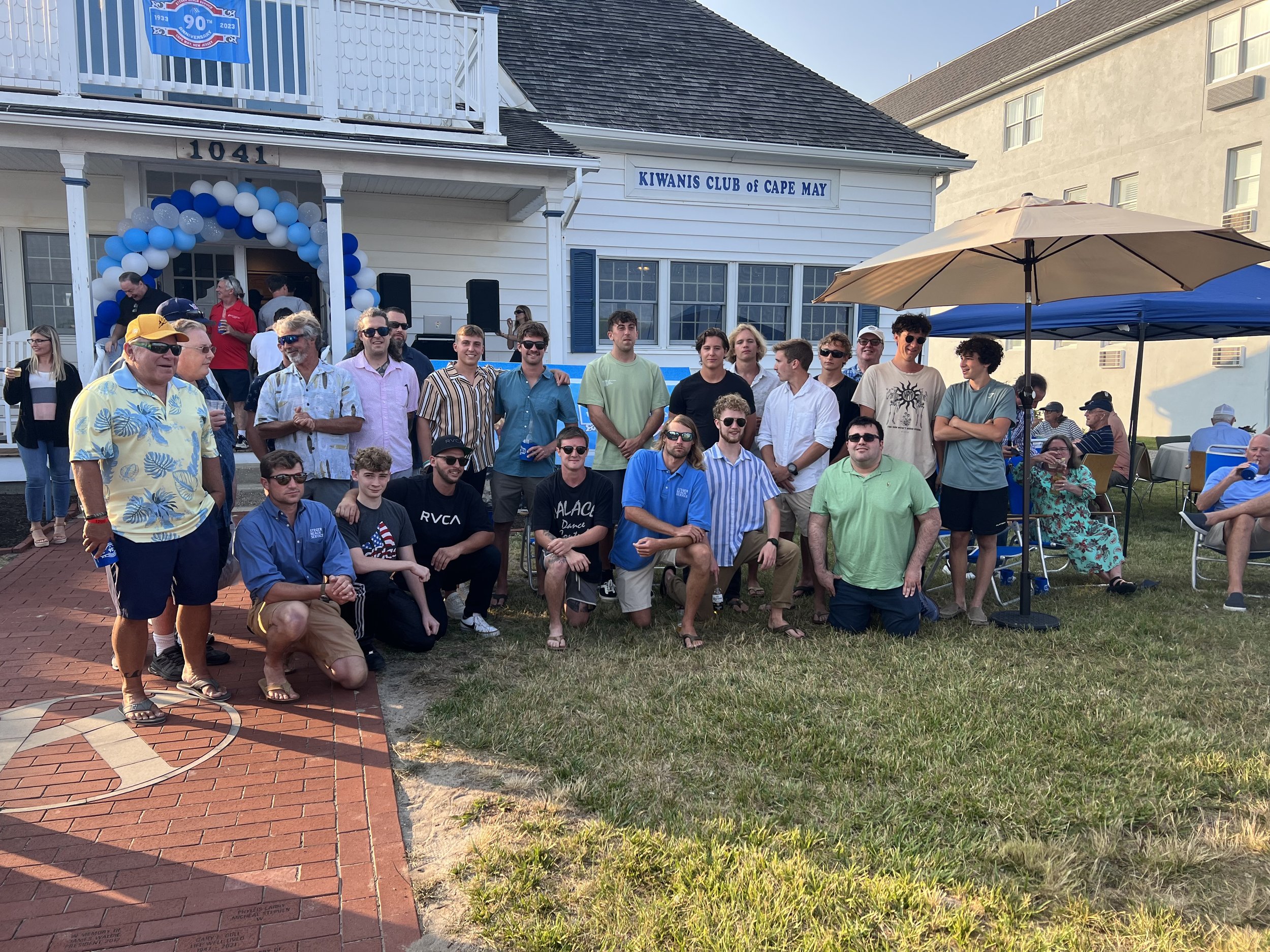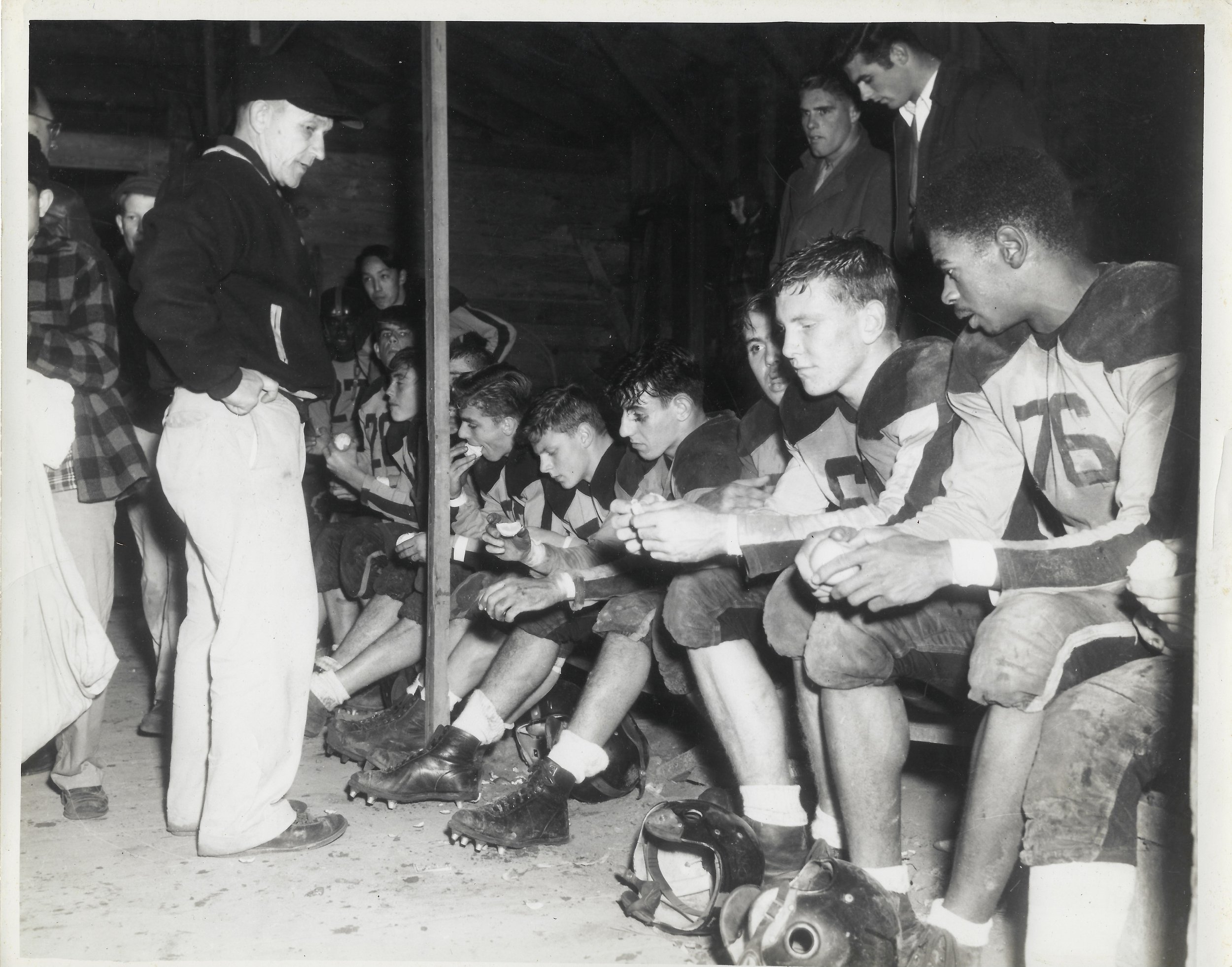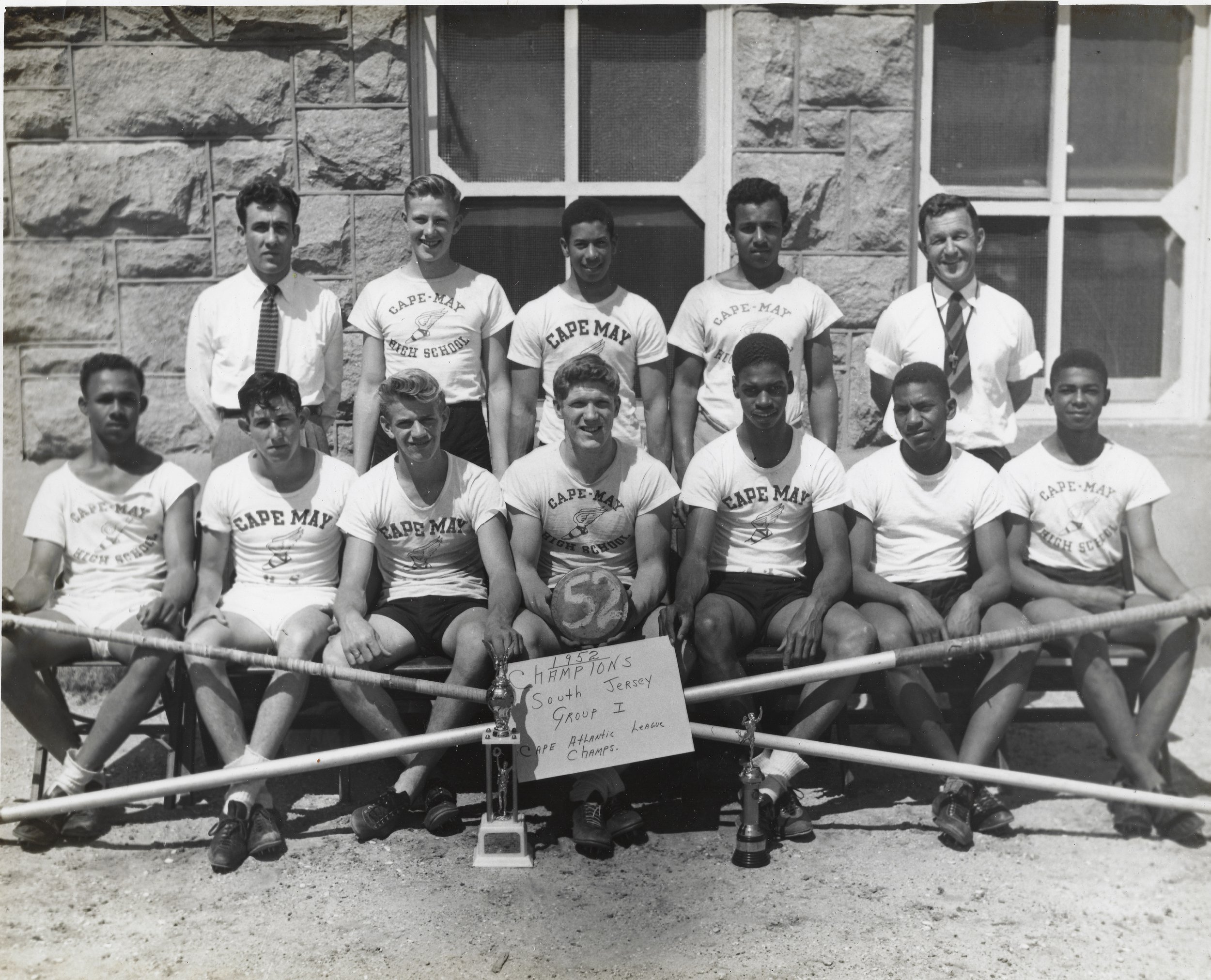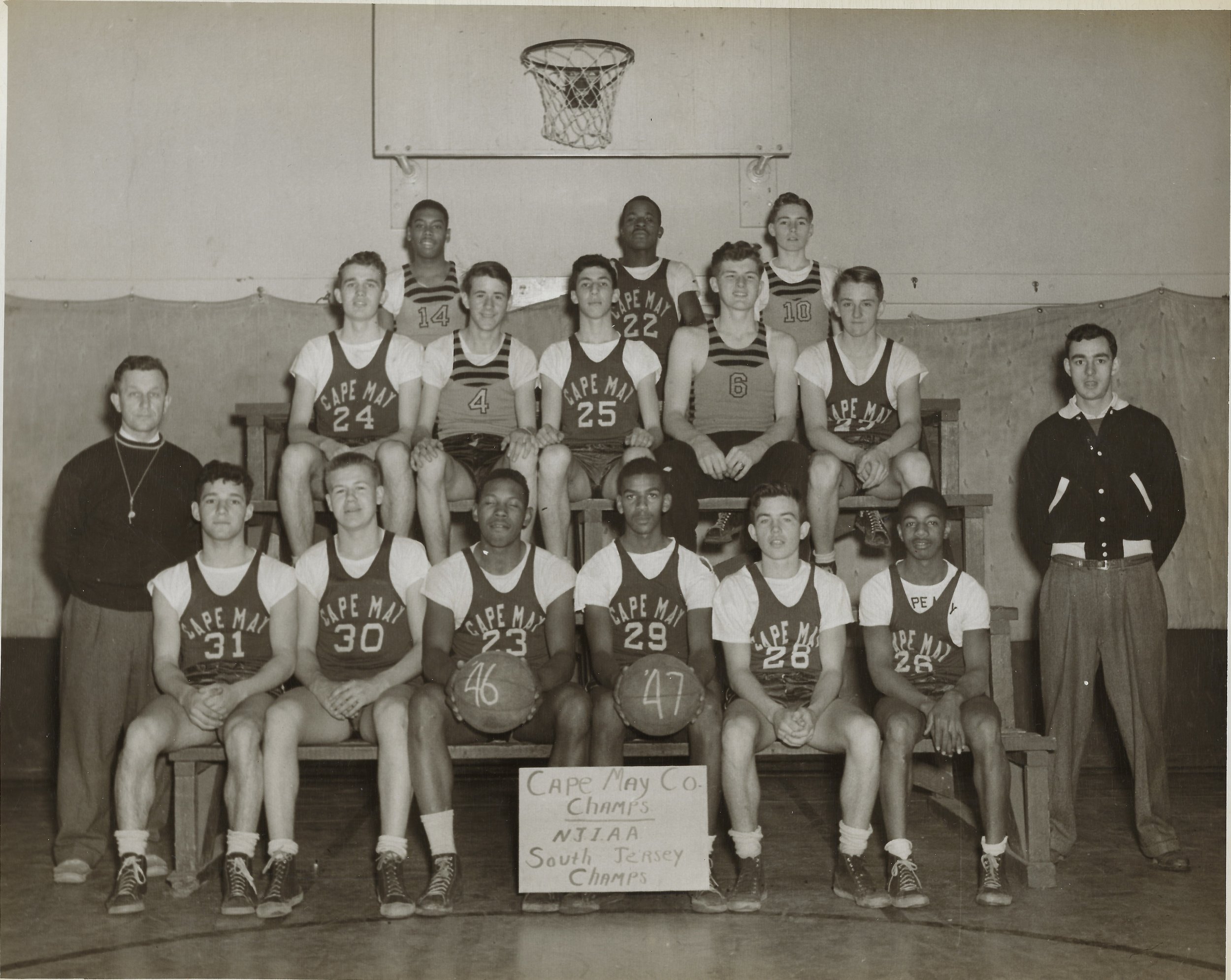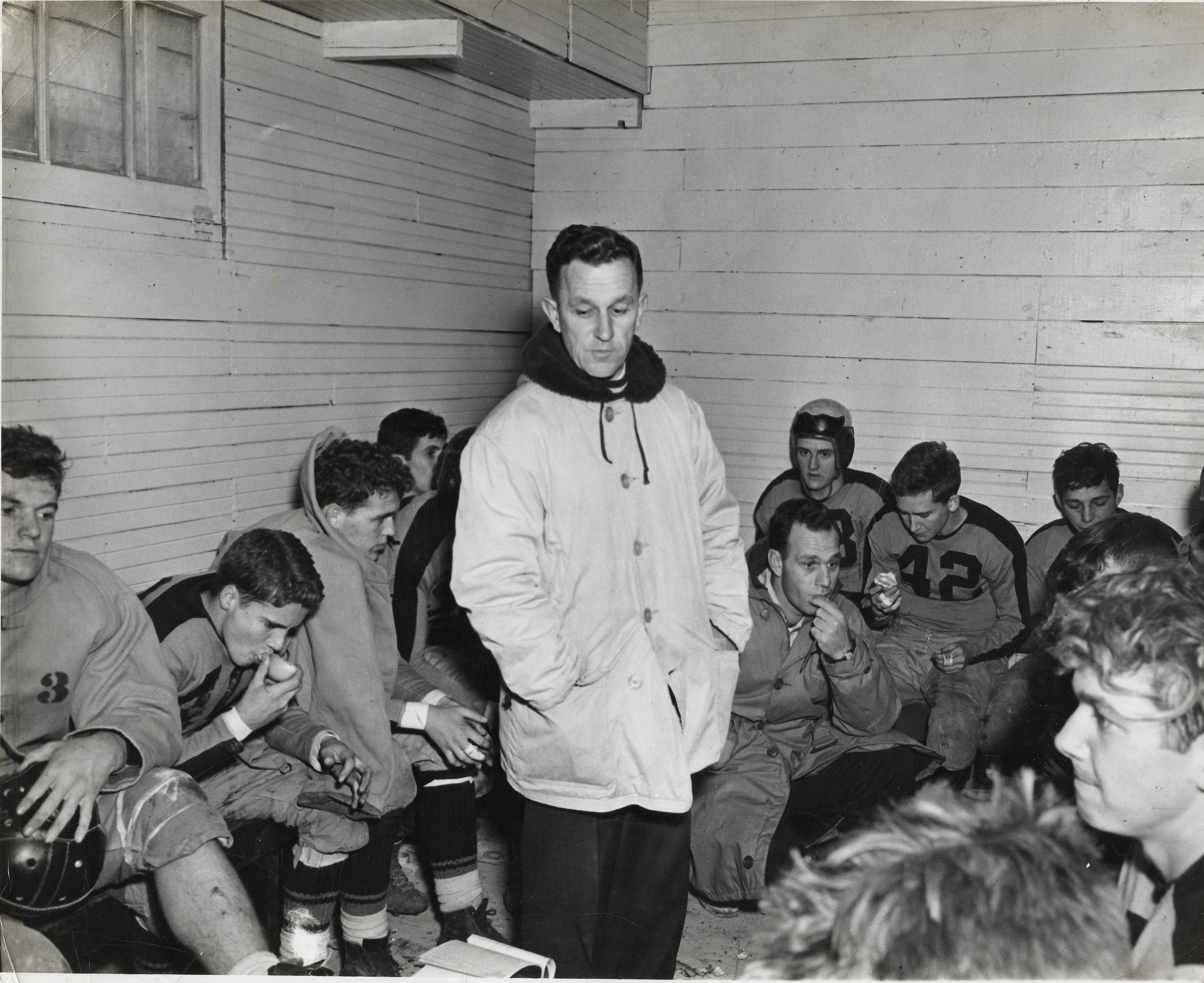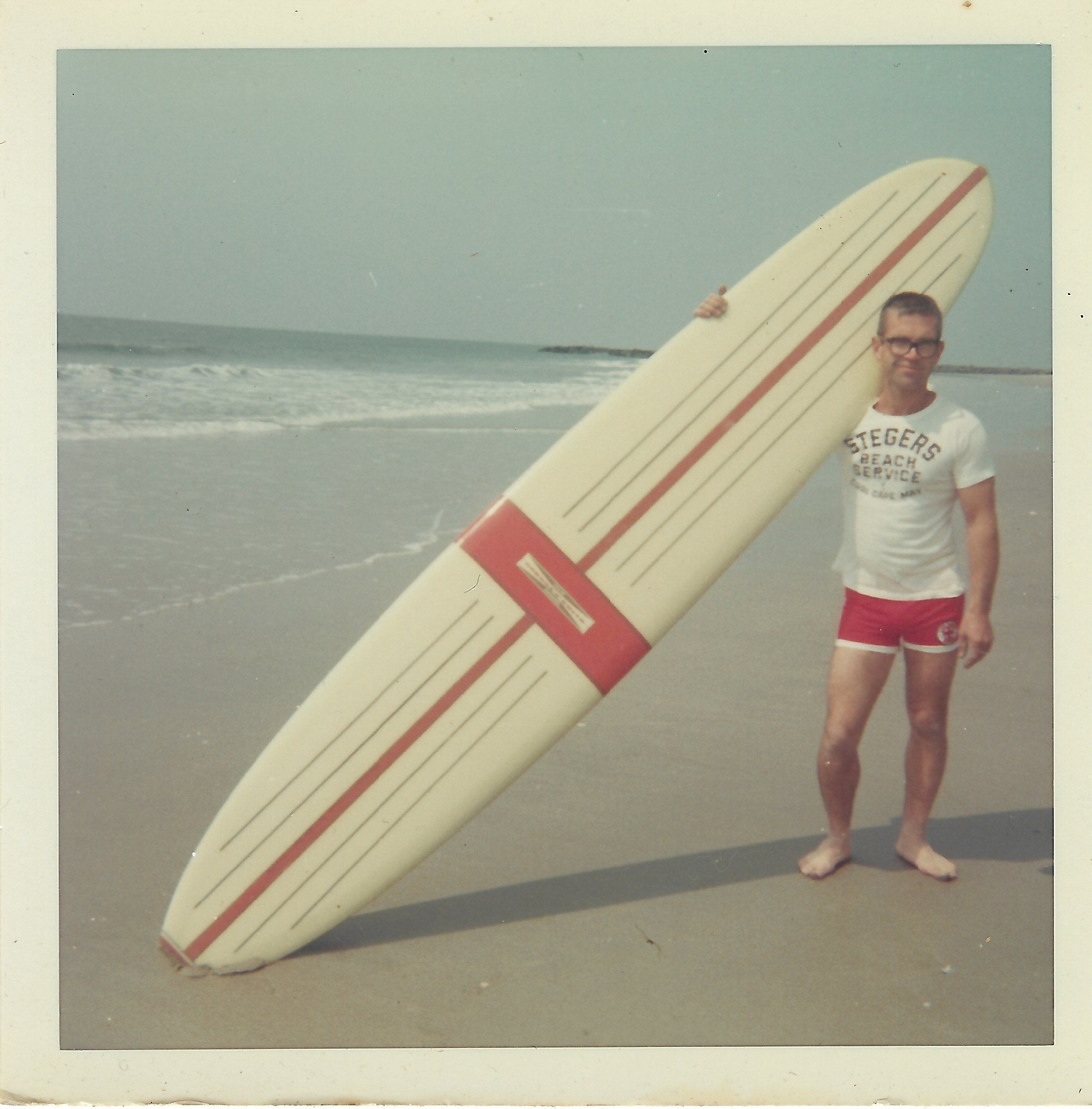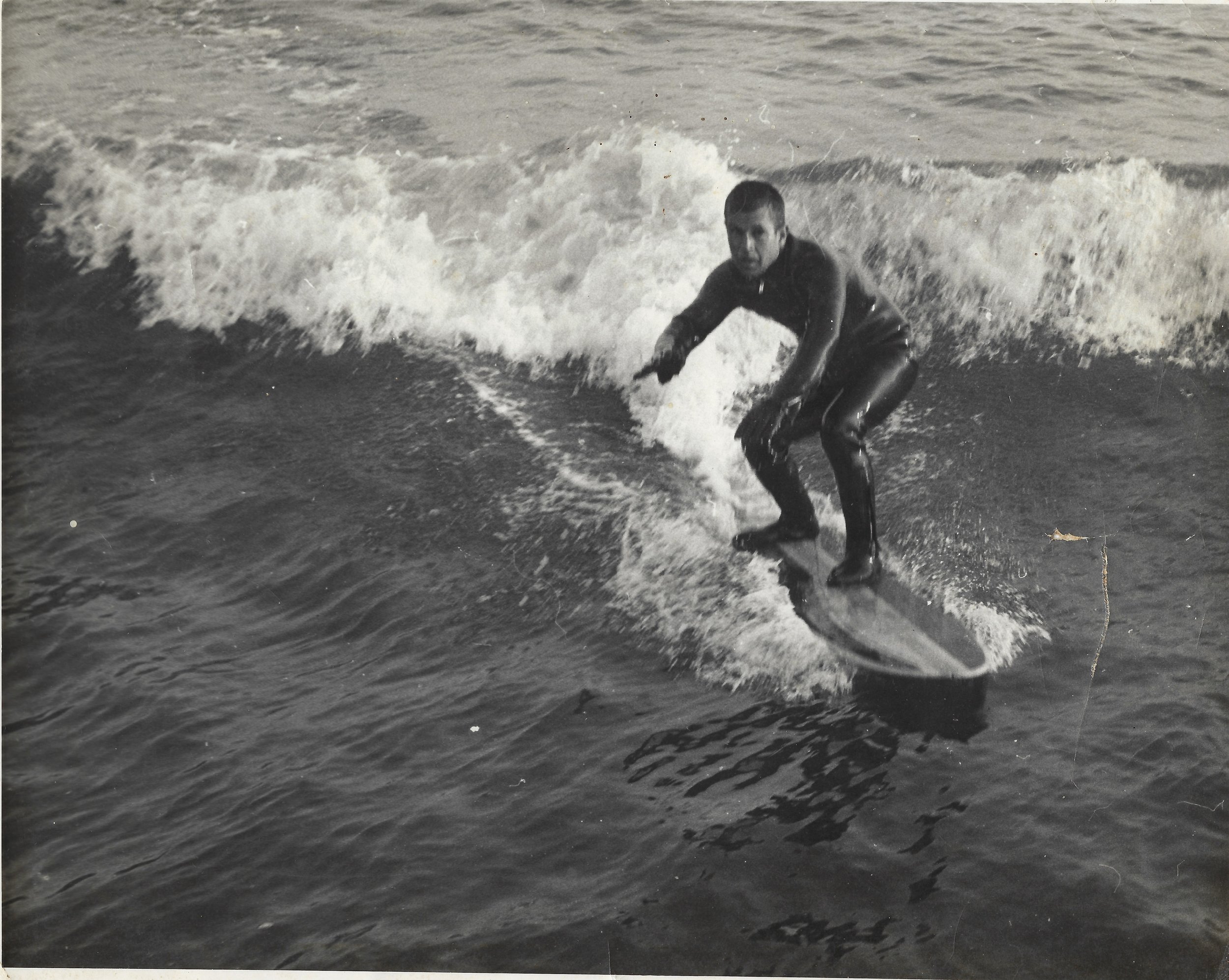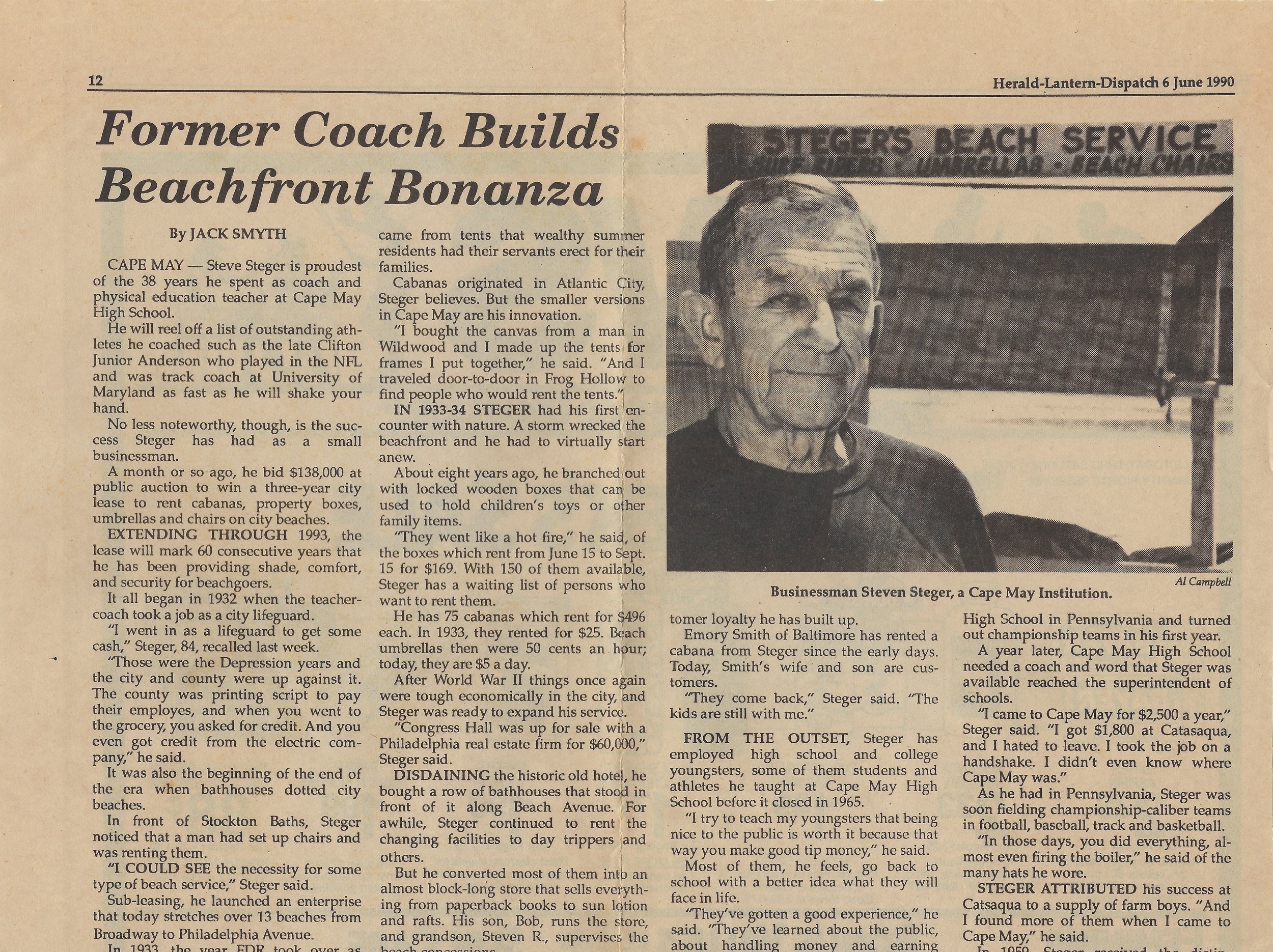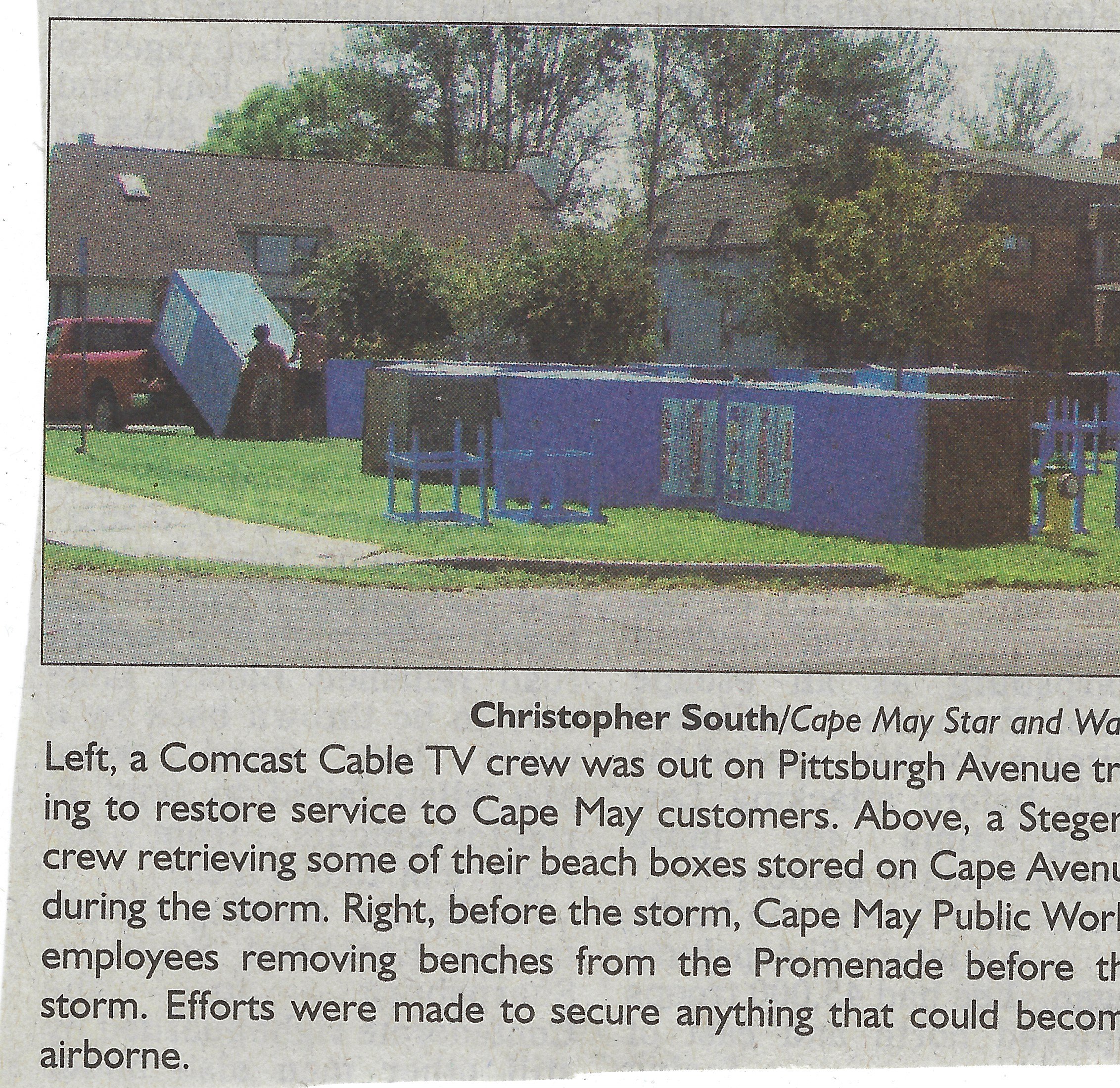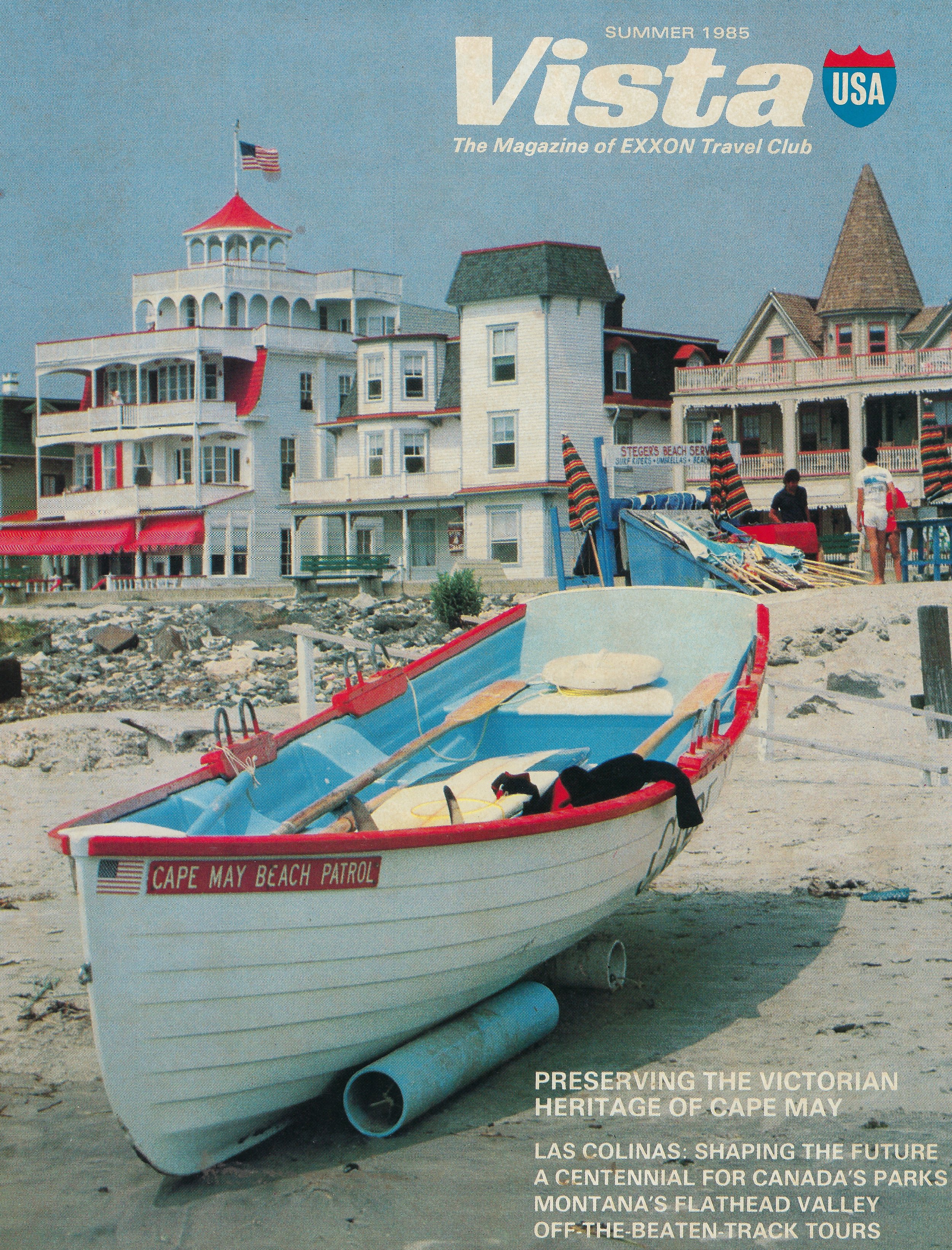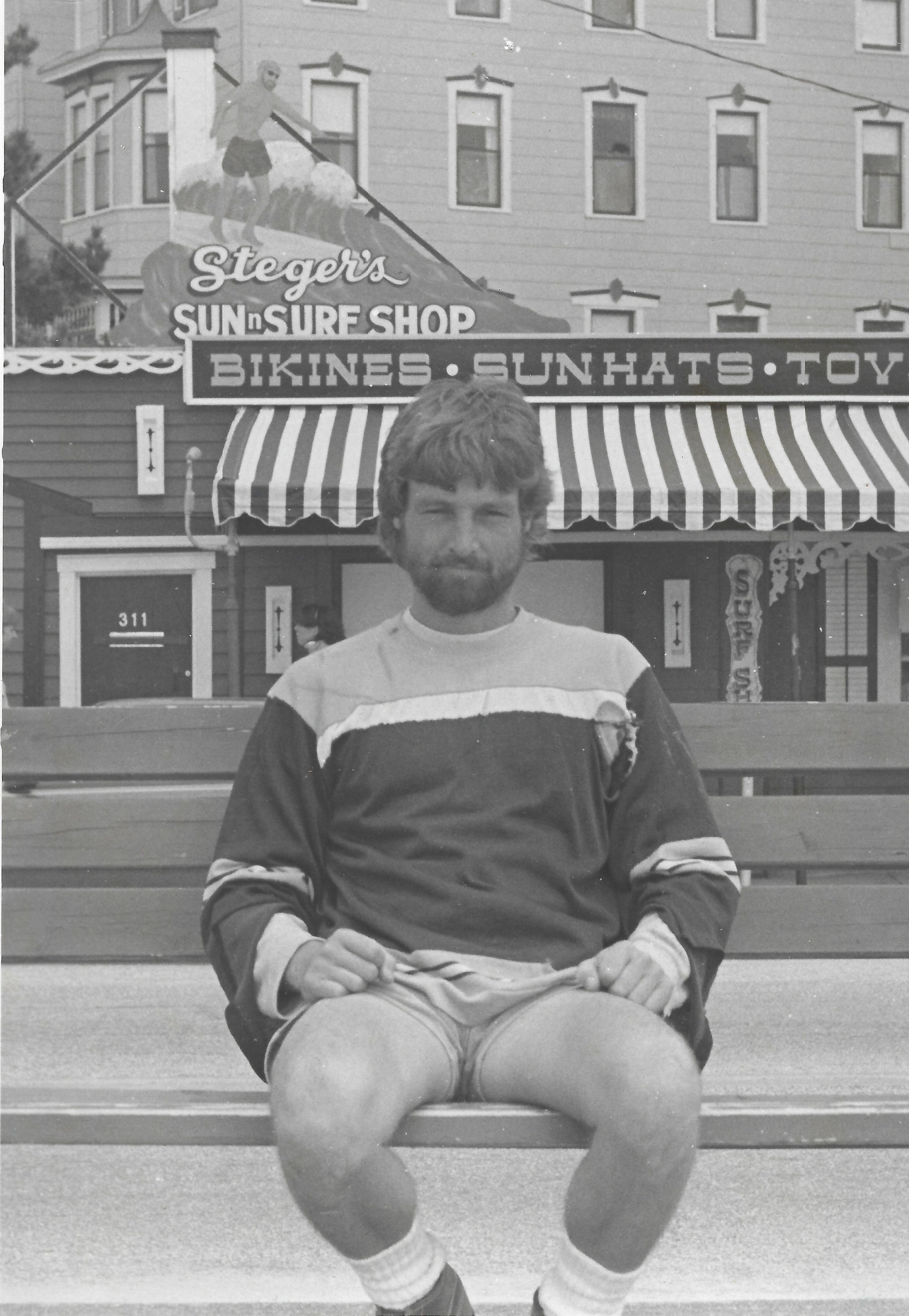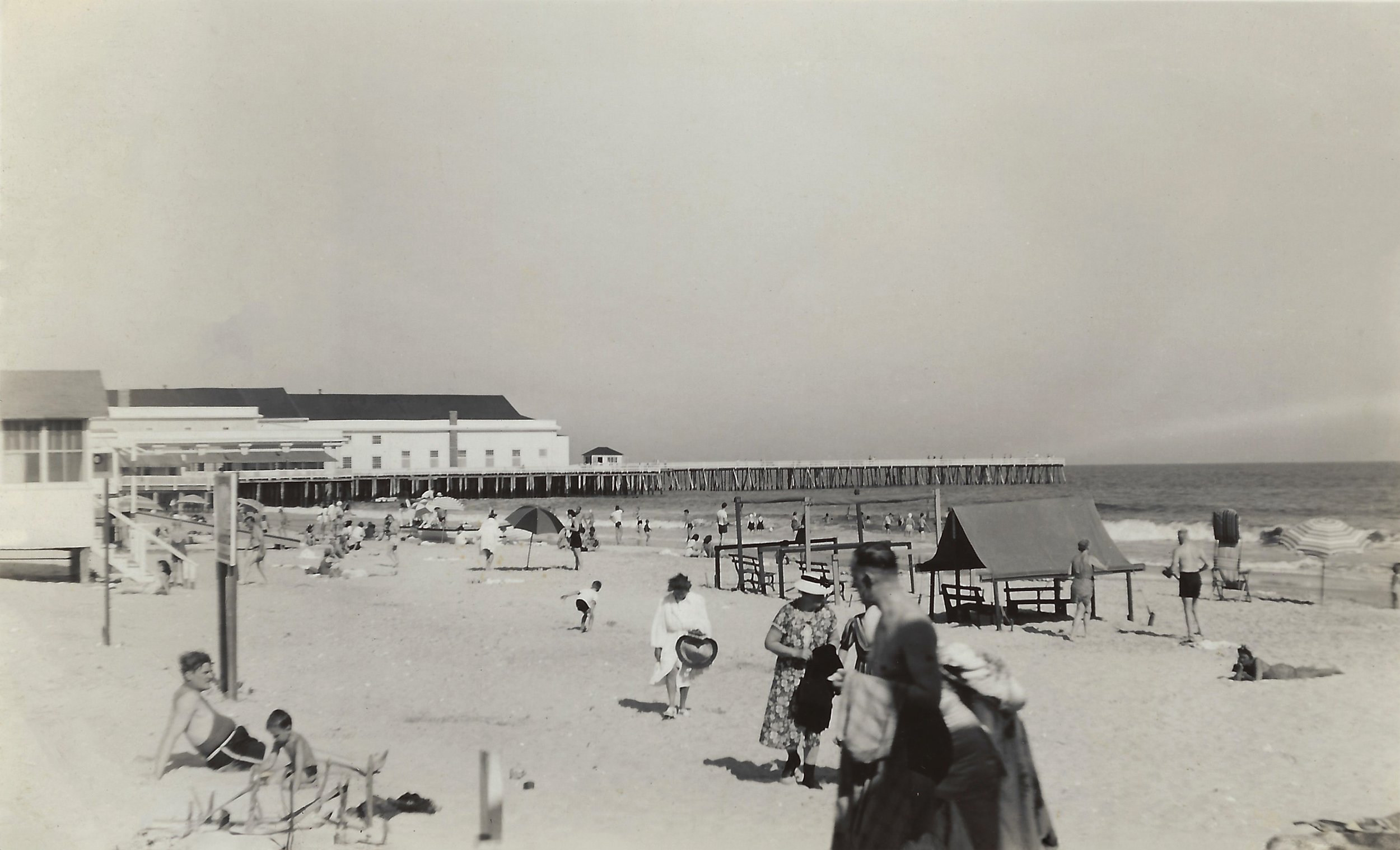
The Next Generation
In the early 1990s through the 2000s, the beach business was in the midst of revitalization, as the family had to start over—much like the summer storm of 1933. Between 2008–2010, Steven decided it was time to rebuild the family’s property to further the purpose and functionality of Steger Beach Service. The old carriage house was in poor condition from years of neglect, lacking running water and proper electrical wiring. Due to zoning and historical preservation restrictions, the building was historically renovated and lifted to proper flood elevations.
The new three-story building included a garage on the first floor, a second-floor storage area, and a third floor originally designed for storage but later converted to office space. With the upgrades, Steger Beach Service was back to operating at full capacity. Today, the barn has transitioned into a residential rental property as Steger’s main office has since moved elsewhere.
Steven R. Steger and his wife Margaret had two sons, Steve and Sean. Both spent their summers working for the family business. In 2013, after graduating from Monmouth University, Steve returned to Cape May with an enterprising spirit and a vision to modernize the business. He introduced new ideas, expanded into fresh opportunities, and strengthened the foundation of Steger Beach Service.
During this period, Betty retired after nearly 50 years of service, entrusting the administrative side of the business to her grandson, Steve. Meanwhile, Sean became more active in business operations, working closely with his father to ensure all equipment and services were ready for the coming summer season.
Steve also explored new ventures during this time, including Steger Stand-Up Paddle Board at Utsch’s Marina and the publication The Local’s Guide, which featured insider stories, photography, history, and local highlights. Though these satellite businesses are no longer active, they stand as examples of the family’s entrepreneurial spirit and their connection to the Cape May community.
In 2017, the Steger organization launched its new resort clothing brand, Steger Beach Company, which featured Steger-branded clothing and home goods in the newly renovated West End Garage on Perry Street.
After more than a decade of experience in the construction field, Steve went on to establish Steger & Associates, a construction management and consulting company. Drawing on both his hands-on contracting background and his family’s long tradition of service in Cape May, Steve built the company around the principles of trust, reliability, and detailed oversight. Steger & Associates specializes in guiding projects from planning through completion, working closely with clients to ensure timelines, budgets, and craftsmanship all meet the highest standard. The company reflects the same dedication to quality and community that has defined the Steger family for generations.
Steger Beach Service has continued the trend of each generation taking the reins, adapting to the times, and expanding the brand. Since 1933, the family has proudly served thousands of new patrons and returning customers, carrying on a century-long tradition. The business still hires local youth and teaches them the basics of business and responsibility—many of whom have gone on to become successful individuals in their own right. Cape May has changed dramatically over the decades through shifting social trends, world wars, hurricanes, storm surges, pandemics, and an ever-changing business community. No matter what the 20th and 21st century may bring, as long as there is a beach in Cape May, the Steger family will always be there to man the post.
In the Beginning...
Steger Beach Service is a family-owned and operated business that accommodates visitors and locals alike on the beaches of Cape May and beyond since 1933. The Steger family has operated a handful of other businesses over the century such as Steger’s Sun n Surf Shop, Steger’s Cape Island Furniture Mart, Steger Beach Service, Inc., The Local’s Guide to Cape May, Steger Stand Up Paddle Board, and Steger Beach Company. Aside from business, the Steger family has been woven into the fabric of Cape May history with their involvement in many organizations, civic groups, and local lore.
The Story of Steger Beach Service begins with a young Lithuanian named Stanislaus Stankowski. Born in 1905, he was the son of two immigrants and one of five children who came to America in search of new beginnings. The family made their home in Nashua, New Hampshire. During this time, the family changed their names in order to be regarded as more American rather than their old-world names. Stanislaus was renamed Steven J. Steger.
During his youth, Steven grew up poor in tenement housing and his parents worked in factories and logging mills. His father died in 1912 in a factory accident leaving Steven, and his four other siblings to grow up without a father.
Some years later, Steven focused on school became a basketball all-star, and received a scholarship to attend Ithaca College in upstate New York. After College Steve received his degree in Physical Education and took a job teaching and coaching at Catasauqua High School in Pennsylvania. When a job opened up in the seaside town of Cape May, Steven was told by the superintendent of schools that he had a good reputation in athletics and coaching. He wanted to award Steven the job as a coach and physical education teacher at Cape May High School. The position was sealed with a handshake, and it marked the beginning of the Steger legacy in Cape May.
The Coach
During the Great Depression, Steven took an additional job on the beaches in Cape May as a lifeguard. While working as a guard, he became friendly with a man who owned the Atlantic Bath Houses, which was located on the corner of Jackson Street to Perry St. He also rented beach cabanas, chairs, and sold sundries.
In 1933 Steven officially bought the aging business. The property also came with the beach in front of the building. Steven had a vision that the city could use the beach service for the growing number of visitors flocking to the seashore. The idea for the enhanced cabana design came from similar cabanas erected on the Atlantic City beaches. His style seemed more appropriate for small families and couples coming to the beach for the day or weekend. His first year of business the summer storm of 1933 hit Cape May and virtually wiped out all his structures and concession stands. He had to start over.
Aside from his business, Steven began to make a name for himself in the teaching and coaching community and earned his nickname “The Coach.”
His coaching career spanned 48 years. During his tenure, he coached baseball, basketball, track for both girls and boys, and football. Later in his career, he became the athletic director for the Lower Cape May Regional School District. Over the years he coached thousands of athletes, some went on to play in the major leagues, and college leagues. Some even managed to follow him and became coaches themselves.
During the Second World War when everyone was enlisting for service, Steven was at an age where he was considered too old for combat. The local recruiting commander said he was more instrumental in training the boys in athletics so they would be in good fighting shape. Steven modeled his exercises after military drills the boys would see in basic training. In order to prepare the boys for war he trained them extra hard and trained alongside them.
In 1959 the Lower Cape May Regional School district recommended him for the prestigious Princeton Prize awarded to secondary education teachers for outstanding service. Steven was a true pillar of the community and his work as a coach and entrepreneur is still talked about to this day.
Bob and Betty
During World War II, Robert served his country honorably in Japan. After the Japanese surrendered Robert worked in retail where he managed one of the trading posts on base in occupied Japan. It was during the end of his service, he decided he would return home and open his own store.
In 1950 he opened Steger’s Cape Island Furniture Mart with his future wife Elizabeth (Betty) Steger. The store sold furniture and home goods. It was located at the end of the present-day Washington Street Mall near Perry Street.
Robert was able to open his store with help from his father and the GI Bill, he was 23 years old at the time. Also, during this time Robert and a group of Cape May business owners chartered Cape May’s Chamber of Commerce, which still exists today.
In 1951 he married Elizabeth (Betty), and the young couple ran the store for 10 years. Tragically in the late 1950s, the rise of department stores and malls put a damper on their business and the couple was forced to sell the business.
Robert was presented with a new opportunity to revamp his father’s beachfront bathhouse. Since Robert was well-trained in retail, they turned the rundown bathhouse into a thriving retail store. Also, during this time surfing was hitting the nation and the sport came to the Jersey shore in the mid-1960s. Robert was one of the first surfers in southern New Jersey. He surfed year-round and managed to buy a diving suit, which allowed him to surf in the winter. Due to the surfing culture sweeping the nation, Robert and Betty renamed the store Steger’s Surf n Sun Shop where it would remain a Cape May icon for the next 30 years.
The couple had two children during the 1950s, Steven R. Steger and Linda Steger. Both children would work in the family business in the summer. The Steger Beach Service continued to rise at this time with hundreds of young employees who worked the beaches over the years renting umbrellas, chairs, cabanas, rafts, and boogie boards. At this time Steger Beach Service occupied every beach in town. Steger’s Surf n Sun Shop continued to gain popularity.
The End of an Era
Steven R. Steger began to take more of an interest in the family business, as Linda moved out of the area with her husband where she later obtained her doctorate degree in child psychology and worked for a variety of school districts on the East Coast. In the mid-1980s, Steven took more responsibility in the family business and began to run the beach operation for his grandfather, while his parents managed the store.
Tragedy struck the family in August 1990 when the Coach died of a heart attack in his sleep. He was 84 years old. Devastated, the Steger family decided to continue to run Steger Beach Service without delay.
However, the family was split over unresolved estate planning, and some wanted to liquidate the Coach’s assets and move on. After many negotiations with lawyers, the family sold all his properties, including the prized Steger’s Surf n Sun Shop. In an effort to preserve the family business, Robert and Betty were able to buy back a portion of the business. Back in 1940, the Coach purchased an 1880s carriage house on Page Street, which at the time was used for nothing other than storage. As part of the buyout package Robert and Betty bought back the carriage house, all beach equipment, trucks, Steger Beach, and Queen Street Beach so they may continue to operate Steger Beach Service. The Hirsch Family of the Montreal Beach Resort bought the block-long property demolished the former home of the Steger’s Surf n Sun Shop, and created seven retail storefronts, which still exist to the present day.
Robert developed Alzheimer’s disease and died in 2007. Steven R. Steger, who at the time was starting a young family of his own with his wife Margaret was tasked with the daunting duty of keeping the family businesses afloat. In 1991 the family retreated to the old carriage house on Page Street as the new headquarters for the beach service. Betty still managed the business administration while her son Steven ran the beach operations. Most of the equipment they were left with was aged and in bad condition, also the hundreds of cabanas were being eclipsed by the new trend to hit Cape May, the beach box.
Steven had his hands full re-vamping the beach business. He started fresh with new chairs, umbrellas, and cabanas. He built hundreds of beach boxes and rebuilt several concession stands. Due to beach replenishment, the beaches grew in size and length, furthering Steger Beach Service operations northbound.
